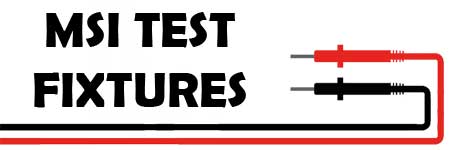
Transportation PCB test fixtures are highly advantageous in the transportation and mobility industry, where electronic components are integral to the operation and safety of vehicles and transportation systems. The benefits of PCB testing in this industry include:
1. Enhanced Vehicle Safety: In modern vehicles, PCBs are used in various safety-critical systems, such as airbag control modules, anti-lock braking systems (ABS), and electronic stability control (ESC). PCB testing ensures the reliability of these components, leading to safer transportation and reducing the risk of accidents.
2. Improved Vehicle Performance: PCB testing helps identify and rectify issues in electronic circuits used in engine control units (ECUs), transmission control modules (TCMs), and other powertrain components. This optimization results in improved fuel efficiency, reduced emissions, and better overall vehicle performance.
3. Compliance with Automotive Standards: The automotive industry adheres to rigorous standards and regulations, such as ISO 26262 (Functional Safety for Road Vehicles) and IATF 16949 (Automotive Quality Management System Standard). PCB testing ensures that electronic components meet these standards, ensuring the safety and reliability of vehicles.
4. Efficient Electric and Hybrid Vehicles: PCB testing plays a vital role in electric and hybrid vehicles, where electronic components control the power distribution and battery management systems. Testing ensures the accuracy and efficiency of these components, contributing to the wider adoption of eco-friendly transportation solutions.
5. Reliability in Autonomous Vehicles: Autonomous vehicles heavily rely on electronic systems, sensors, and communication modules. PCB testing ensures the reliability of these components, minimizing the risk of system failures and enhancing the safety of autonomous transportation.
6. Faster Innovation and Time-to-Market: In a competitive market, rapid innovation is essential for staying ahead. PCB testing allows manufacturers to quickly validate new electronic designs, enabling faster development and shorter time-to-market for cutting-edge transportation technologies.
7. Compatibility with Connectivity Technologies: The transportation industry is integrating various connectivity technologies, such as V2X (Vehicle-to-Everything) communication and telematics. PCB testing ensures seamless integration of these technologies, enabling smarter and more connected transportation systems.
8. Reduced Maintenance Costs: PCB testing helps identify potential faults in electronic systems before they escalate into major issues. This proactive approach reduces the need for extensive repairs and maintenance, saving transportation companies and vehicle owners significant costs.
9. Reliable Public Transportation Systems: In public transportation, such as buses, trains, and trams, electronic components play a critical role in operational efficiency and passenger safety. PCB testing ensures the reliability of these systems, leading to improved service and customer satisfaction.
In conclusion, Transportation PCB test fixtures are essential in the transportation and mobility industry to ensure the reliability, safety, and performance of electronic components in vehicles and transportation systems. By supporting innovation, compliance with industry standards, and the integration of advanced technologies, PCB testing contributes to a safer, more efficient, and sustainable transportation ecosystem.
